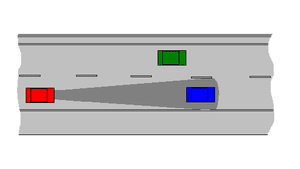Research shows human error is a factor in 90 % of accidents.
Smart automotive technologies that help drivers avoid collisions, navigate and improve fuel efficiency should make Europe’s roads safer, ease congestion and reduce pollution. But just how beneficial are they? Potentially very, according to vehicle manufacturers, researchers, automotive suppliers and other stakeholders who answered that question in a landmark EU-funded project.
More than 30,000 people die in traffic accidents every year in Europe – an average of 85 people every day – and more than a million are injured. Research shows human error is a factor in 90 % of accidents.
EU-wide, the road death toll has declined significantly in recent years thanks to a combination of increasing driver awareness, tougher laws and technological developments – from air bags to electronic stability control systems – that have made drivers and passengers safer.
Now a range of new smart technologies are starting to be fitted into cars that, if used widely, could reduce the number of accidents even further, and in the process save on fuel, cut emissions and reduce traffic jams.
That is the overall conclusion of the team behind the ‘European field-operational test on active-safety functions in vehicles’ ( euroFOT) project, which carried out the first ever Europe-wide field operational test to assess the benefits of ‘Intelligent vehicle systems’ (IVS) on traffic safety and efficiency.
With the support of almost EUR 14 million in funding from the European Commission, a thousand cars and trucks equipped with advanced systems travelled 35 million kilometres on Europe’s roads for more than a year while the euroFOT team gathered data from in-vehicle sensors, cameras and driver questionnaires.
Eight IVS technologies were tested, including ‘Adaptive cruise control‘ (ACC), which uses radar to maintain a pre-set distance from the vehicle in front, and collision warning systems that alert drivers to potential front-end collisions. Curve-speed warning systems, blind-spot detectors, fuel efficiency monitors and navigation systems were also tested.
‘When a new technology is developed it is usually tested individually, but a field operational trial using real drivers in real vehicles in real traffic conditions allows us to assess how these systems perform in the real world and how ordinary drivers interact with them,’ explains Aria Etemad, a senior research coordinator at Ford Research & Advanced Engineering Europe in Germany.
Fewer accidents, less congestion, better fuel efficiency
The team found, for example, that cars equipped with both ACC and ‘Forward-collision warning‘ (FCW) systems could have a positive impact of up to 5.7 % on the number of accidents on motorways that result in injury or death.
Fewer accidents, in turn, the euroFOT researchers calculated, should lead to less motorway congestion, reducing the total amount of time drivers spend sitting in traffic jams across the EU by more than three million hours. And, it turns out, the use of ACC and FCW systems result in more efficient driving, reducing fuel consumption by an average of 3 % – as much as 7 % in some vehicles – without taking into account the positive impact on road congestion.
‘The data shows that there are widespread social and economic benefits from IVS technologies, in addition to avoiding potential accidents,’ Mr Etemad, the euroFOT coordinator, says. ‘We also noted that the use of these systems has a positive impact on drivers’ experiences, they felt safer, more supported and more comfortable.’
Surveys of drivers, conducted before, during, and after they took part in the trials, showed that more than 70 % believed systems such as ACC, FCW and other tested technologies such as speed regulation systems, curve-speed warning and blind-spot detectors helped reduce critical situations and made them safer. Navigation systems, the researchers found, also had a positive impact on driver behaviour, reducing sudden lane changes and harsh braking, for example.
via CORDIS
The Latest Streaming News: Intelligent vehicle systems updated minute-by-minute
Bookmark this page and come back often
Latest NEWS
Latest VIDEO









